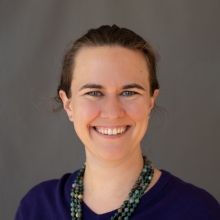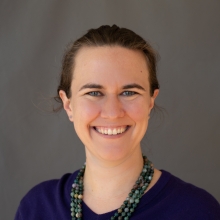
Steph Eaneff, MSP

Steph is a data scientist with expertise at the intersection of public health and public policy. She has worked with a variety of interdisciplinary research groups, including PatientsLikeMe, The New York Times, and the Southern California Injury Prevention Research Center. Steph holds a master’s degree in statistical practice from Carnegie Mellon University and a bachelor’s degree in biochemistry from UCLA.
PROJECTS
Algorithmic Stewardship: The use of AI/ML algorithms in clinical practice holds promise for improving the diagnosis, treatment, and management of disease. However, when used inappropriately, algorithms also have the potential to perpetuate existing biases and reinforce underlying patterns of structural inequality. To mitigate this risk, researchers, clinicians, and hospital administrators require clear processes for auditing algorithms prior to deployment and for monitoring their continued use. Steph is working with experts from UCSF, UC Berkeley, and Johnson & Johnson to develop draft guidance and best practices for hospital algorithmic stewardship programs. As part of this, she is developing open-source code and tools to monitor the safety, efficacy, and fairness of algorithms used in clinical settings.
COVID-19 Model Inventory: Public health responders and epidemiologists have rapidly responded to the COVID-19 outbreak by developing models to forecast how the outbreak might unfold under various possible scenarios. In the absence of a central repository or international coordinating body for public health response modeling, these models are often developed in isolation and shared and documented inconsistently, making it difficult to rapidly access, understand, and compare results from different validated models. To address this gap and to facilitate open-source, reproducible epidemiological modeling for COVID-19 response and recovery, Steph is developing a publicly available, centralized data repository and data architecture to align and consistently document the results of validated models developed by public health experts. This effort will allow public health decision-makers at the state, local, and regional levels to make direct and meaningful comparisons between models under different sets of assumptions and modeling approaches.

Steph Eaneff, MSP
UC Berkeley, UCSFSteph is a data scientist with expertise at the intersection of public health and public policy. She has worked with a variety of interdisciplinary research groups, including PatientsLikeMe, The New York Times, and the Southern California Injury Prevention Research Center. Steph holds a master’s degree in statistical practice from Carnegie Mellon University and a bachelor’s degree in biochemistry from UCLA.
PROJECTS
Algorithmic Stewardship: The use of AI/ML algorithms in clinical practice holds promise for improving the diagnosis, treatment, and management of disease. However, when used inappropriately, algorithms also have the potential to perpetuate existing biases and reinforce underlying patterns of structural inequality. To mitigate this risk, researchers, clinicians, and hospital administrators require clear processes for auditing algorithms prior to deployment and for monitoring their continued use. Steph is working with experts from UCSF, UC Berkeley, and Johnson & Johnson to develop draft guidance and best practices for hospital algorithmic stewardship programs. As part of this, she is developing open-source code and tools to monitor the safety, efficacy, and fairness of algorithms used in clinical settings.
COVID-19 Model Inventory: Public health responders and epidemiologists have rapidly responded to the COVID-19 outbreak by developing models to forecast how the outbreak might unfold under various possible scenarios. In the absence of a central repository or international coordinating body for public health response modeling, these models are often developed in isolation and shared and documented inconsistently, making it difficult to rapidly access, understand, and compare results from different validated models. To address this gap and to facilitate open-source, reproducible epidemiological modeling for COVID-19 response and recovery, Steph is developing a publicly available, centralized data repository and data architecture to align and consistently document the results of validated models developed by public health experts. This effort will allow public health decision-makers at the state, local, and regional levels to make direct and meaningful comparisons between models under different sets of assumptions and modeling approaches.





